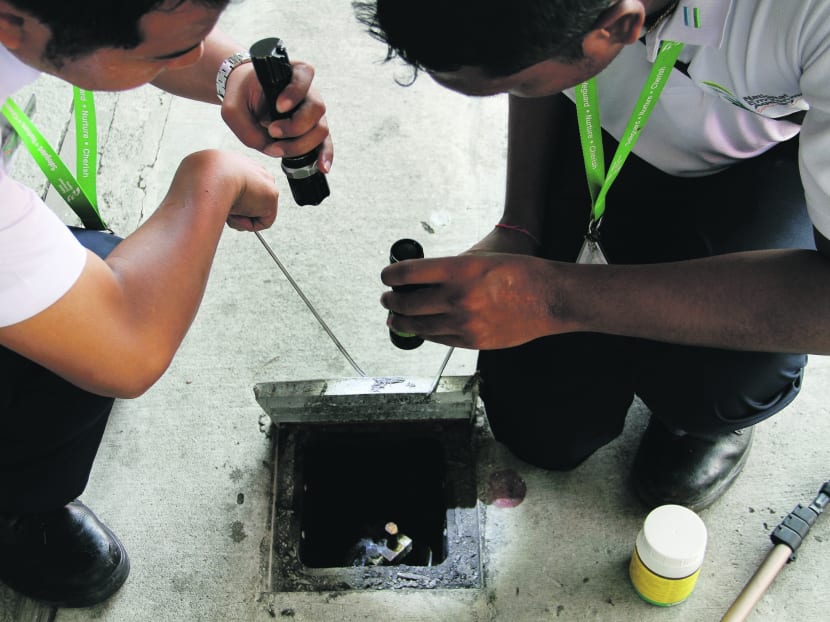Mosquito traps to be placed in residential areas to fight dengue
SINGAPORE — As part of their efforts to control the spread of dengue here, the National Environment Agency (NEA) will be progressively placing gravi-traps in different residential areas to reduce the mosquito population.
SINGAPORE — As part of their efforts to control the spread of dengue here, the National Environment Agency (NEA) will be progressively placing gravi-traps in different residential areas to reduce the mosquito population.
Developed by the NEA’s Environmental Health Institute, gravi-traps are black cylindrical containers with sticky surfaces which will trap female Aedes mosquitoes looking for water surfaces to lay their eggs.
A trial was previously conducted from October until last month, where about 1,300 gravi-traps were placed in the Housing Board estates in Clementi and Bukit Panjang.
Said a NEA spokesperson: “Through tracking which Gravitraps are capturing mosquitoes, and analysing this data together with other field intelligence, we can obtain a better sense of which areas have a higher mosquito population and where there may be undiscovered sources of mosquito breeding, so that we can optimise our vector control efforts.”
Apart from the trial, NEA is also deploying Gravitraps in large dengue clusters to complement other mosquito control measures. Last year, about 1,500 Gravitraps were deployed in about 80 clusters.
For example, it was used to monitor the Orchard Road cluster, which became the largest dengue hotspot in December.
During his ministry’s committee of supply debate, Environment and Water Resources Minister Vivian Balakrishnan cautioned that the dengue outbreak which Singapore has been experiencing since last year is not over yet, although the numbers have come down significantly.
The number of dengue cases had hit a historic high of 22,170 cases last year, with 3,420 cases detected so far this year as of yesterday at 3.30pm.










